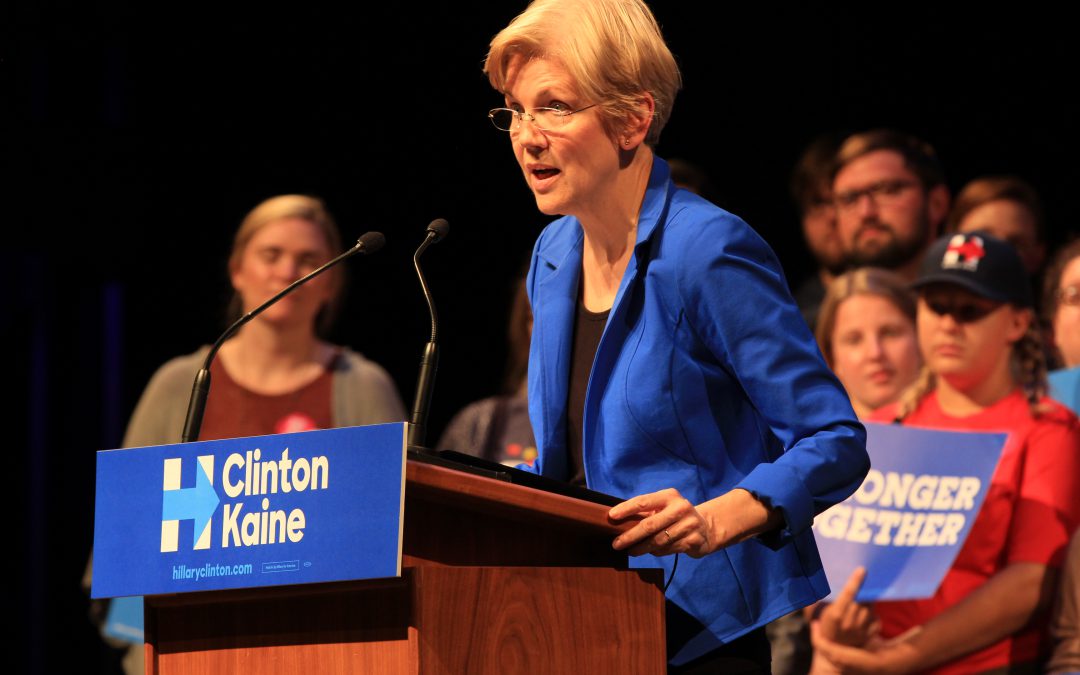WASHINGTON — Sen. Elizabeth Warren said Wednesday that the fight for a higher minimum wage should shift to state and local governments while Republicans control both chambers of Congress.
Her remarks came during a conference call with reporters following release of a report Wednesday that draws attention to gender inequities in low-wage jobs.
“This is one of those times where you read something and you wish it didn’t say what it says. I wish that today’s report had better news,” said Warren, a fierce Senate critic of large corporations and Wall Street banks.
She used the time to plug a bill in the Senate that seeks to normalize work hours, avoiding practices such as placing workers on-call with no guarantee of actual work hours.
“We may not have a Democratic majority in the Senate to pass this bill but that doesn’t mean that we are any less committed to fighting for women working in low-wage jobs all across the country,” she said.
The report put out by Oxfam America, a left-leaning nonprofit that seeks to combat income inequality and discrimination, focuses on low-wage jobs that appear to be segregated by gender.
It contends that the number of low-wage jobs where the workforce is majority-women is growing rapidly and by 2024, will account for one in six of all jobs in the U.S.
Opponents of raising the $7.25 per hour federal minimum wage argue that it would hurt small businesses and lower employment levels by pushing low-wage workers out of the market.
President-elect Donald Trump broke from the GOP’s stance in late July calling for a $10 an hour federal minimum wage. Previously he had said wages were “too high” but also tweeted that the middle class has had “no effective raise in years. BAD.” Democrat Hillary Clinton supported a $12 minimum, but said localities should be allowed to set a higher minimum.
Many states and municipal jurisdictions have already established minimum wages above the federal level.
“We keep up the pressure at the federal level, we work on it at the state level, we work on it at a county level and a city level,” said Warren.
In 2015 Senate Republicans blocked a measure to raise the minimum wage to $12 by 2020.
Mary Babi, author of the Oxfam report, said her analysis challenged the narrative heard during the election campaign that low-wage workers are mostly white and male.
“The reality is that the real face of demanding low-wage jobs is most likely female,” Babi said. “What’s more the odds are that she’s a women of color in her thirties and a mother of dependent children.”
According to the report roughly 45 percent of the women in low-wage jobs are women of color, compared to 34 percent in the overall workforce.
Barbara Gault, vice president and executive director of the Institute for Women’s Policy Research, said that the report showed that one in four women in the U.S. labor force were employed in low-wage, female-dominated jobs.
“The report used data from the Bureau of Labor statistics and current population survey, a monthly update by the Census Bureau
The study says that low-wage occupations, where the majority of workers are women, tend to involve cooking, cleaning, serving and caring for people. In recommendations, the report calls for an end to tipped minimum wage — the practice of paying workers less per hour than the minimum wage if they regularly receive tips.
In the restaurant industry, a majority of non-tipped workers are men, while those receiving tips are often women, according to Saru Jayaraman, the co-founder of Restaurant Opportunities Center, an advocacy organization for wages and working conditions. Tipped workers can be paid as little as $2.13 an hour, she said.


